#LOL Napoleon's correspondence
Text
"The President will realize what an imbecile he has sent us."

Mind of Napoleon: A Selection of His Written and Spoken Words by J. Christopher Herold, 1955.
9 notes
·
View notes
Text
“Is the Minister mad? or is he joking?”
— Napoleon about Fouché (letter to Cambacérès, 13 July 1808)
82 notes
·
View notes
Text
ok while i'm working on which meta stuff i want to have on this blog, i do want to make a somewhat? detailed post on some name headcanons i have. so. some countries whose names i either tweak or change from the ones suggested by himaruya (arguably, there are no canon names. alfred is really the only one you could argue for lol)
🇷🇺 - ivan ivanovich morozov
hima doesn't give patronymics to the countries that would use them. ivanovich comes from ivan being very young and asked what his full name is, and the only male name he could think of was his own lol so he just stuck with it. and yes both sisters have teased him for this.
morozov is derived from the russian word for "frost," which i find fitting; i wanted to find a non-jewish surname for him because i don't headcanon him as jewish and. of all the non-jewish countries to have a jewish surname.....well. no judgement on people who use braginsky and i doubt himaruya meant any harm or anything but yeah that's why i use a different surname for him lol
🇱🇹 - tolvydas jonas laurinaitis
shoutout to @hinotorihime who i believe was one of the first, if not the first person in the fandom to suggest tolys being a more accurate translation of トーリス (since japanese doesn’t distinguish between R/L sounds like indo-european languages do, and english doesn’t distinguish between I/Y the way lithuanian does, and tolys being an EXCEEDINGLY uncommon name, i don’t think “toris” is an unreasonable translation to have made after the game of language telephone from lithuanian->japanese-> english lol. トーリス would be directly transliterated like “to risu” for those unfamiliar with katakana. it’s worth noting that pixiv translates his character tag as “tolys”). uhh the source he gave me is a website that no longer exists and wasn't archived unfortunately, but "tolvydas" means something like "far seer" and tolys is a shortened form of it
jonas is the name he added when he was finally baptized, and it's in reference to john the baptist
anyway, here is an old post where she explains some name meanings!
🇪🇪 - eduard tamm
look i know eduard isn't really used in estonia but the guy simply gives off eduard vibes to me, sorry
tamm, aside from being the most common surname, means "oak"
🇱🇻 - raivis bērziņš
bērziņš is, again, the most common surname and means "birch"
ed and raivis having the most common surnames in their countries i swear isn't me being lazy, i like the idea of all 3 baltics having tree names (laurinaitis referring to "laurel")
🇵🇱 - feliks mieczysław kazimierz łukasiewicz
who let the poles be catholic so. feliks has only been a name used in poland since around the 1800s? iirc, it was specifically brought over because of a fascination with french names but i might be wrong lol (and ultimately the origins of the name are latin, so variants of it are pretty old anyway). anyway.
i've decided that his first name used to be mieczysław and he changed it around the time of the napoleonic wars to feliks, but kept the old name.
kazimierz was chosen at his baptism and refers to st casimir, one of the many patron saints of poland (there's literally a wikipedia article dedicated to them all lol)
🐥 - gilbert maria beilschmidt
mary was just a hugely important aspect of gil's history as a knight (and the specific orders he represented also). he hasn't been catholic in centuries but he keeps maria in his legal name because that's his mom, guys
N. 🇮🇹 - felice luca veneziano
veneziano and romano being surnames (meaning "venetian" and "roman" respectively) i decided to just...assign the italy bros their uh. titles? as surnames. apparently siblings having separate surnames isn't unheard of for the nations lol, anyway. i thought it would be more fitting as i also headcanon that there's at least 20 italies (corresponding with each modern-day region though the actual history gets a bit messier, like my tuscany oc is more properly my florence oc.....that's another post, tho) and vene and romano represent. well. veneto (but originally venice) and lazio (but originally the city of rome...though i have yet to decide when he started representing rome because he's not an Ancient....anyway.....)
felice being the italian variant of "felix"
luca is a baptismal name referring to st luke, who is a patron of (amongst other things) artists
S. 🇮🇹 - lovino francesco romano
heh so lovino is in the category of not really a real name but i like it and have never really felt drawn to another name instead
francesco refers to st francis of assisi who is hugely popular. well, in general. and is a patron of italy. i need to workshop some more headcanons about romano and religion because of....reasons lol, but this is definitely a name he took on relatively recently.
#heta meta#name post#this is definitely another one that will be updated as i come up with new thoughts lol#like my god i REALLY need to come up with a hebrew name for rod.....#and i need to decide on a czech name and a hebrew name for czechia.........
14 notes
·
View notes
Text

10.02.2024
BI-WEEKLY (ISH?) ACHIEVEMENTS:
Worldbuilding: Worked on a post on the geography, flora & fauna of The Sorcerer's Apprentice universe which I meant to publish last week, but was unable to finish due to life circumstances (my favourite aunt went to intensive care, and I caught a nasty stomach bug while visiting her). At any rate, it's almost done, so it should go up sometime next week.
Continued Researching Colonialism, Neocolonialism, Coloniality as a Concept and Decolonial Practices: I've been reading Edward W. Said's Culture and Imperialism for the last few weeks and I'm making slow but steady progress. My plan is to pick up Said's Orientalism next, which I've heard is also a go-to text on colonialism. In addition, I also read A Decolonial Feminism by Francoise Verges, which I found quite eye-opening and will be incorporating into Altaluna's storyline (namely, I'll be showcasing how some forms of feminism are used to further colonial aims through interactions between Altaluna and her supposedly 'transgressive' peers); The Good Die Young: The Verdict on Henry Kissinger, a compilation of essays on how Kissinger (who I met in his declining years) used and abused human rights discourse to further US economic control (capitalism with US supremacy incorporated) over so-called 'third-world' regions, and how this is the standard practice for US foreign policy to this day (I'm borrowing this two-pronged approach for interactions between the Empire and it's subordinate 'independent' states); and Toussaint L'Ouverture: The Haitian Revolution, a compilation of Toussaint's (and a couple others, including Napoleon's) correspondence during Toussaint's fight for independence. The book features an outstanding introduction by Jean-Bertrand Aristide and offers a stark contrast to Kissinger's views on Human Rights; in Toussaint's letters and speeches, these rights come with no strings attached and are pursued on principle, out of the genuine belief that they are inalienable to all (at one point the British offered to 'make him' King of Haiti and he refused, which I have to admit, I was pretty impressed by). I also did quite a lot of follow-up reading on Haiti, as an example of the colonialism-to-neocolonialism pipeline. Given that The Sorcerer's Apprentice is set in a neo-colonial world, reading up on Haiti's history helps me better portray the continuity between these two systems and indirectly criticize the idea that today both my readers and I live in a post-colonial world. BTW, if you're unfamiliar with the horrors visited upon the Haitian people (did you know that up until 2015, when France 'forgave' them their debt, the government of Haiti had been paying the French compensation for their loss of slave labour?), check out this article. Likewise, if you're unfamiliar with the difference between colonialism and neo-colonialism (as I was for 99.9% of my life lol), take a look at the iconographic below.
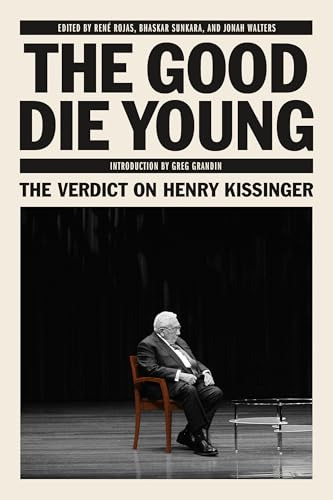
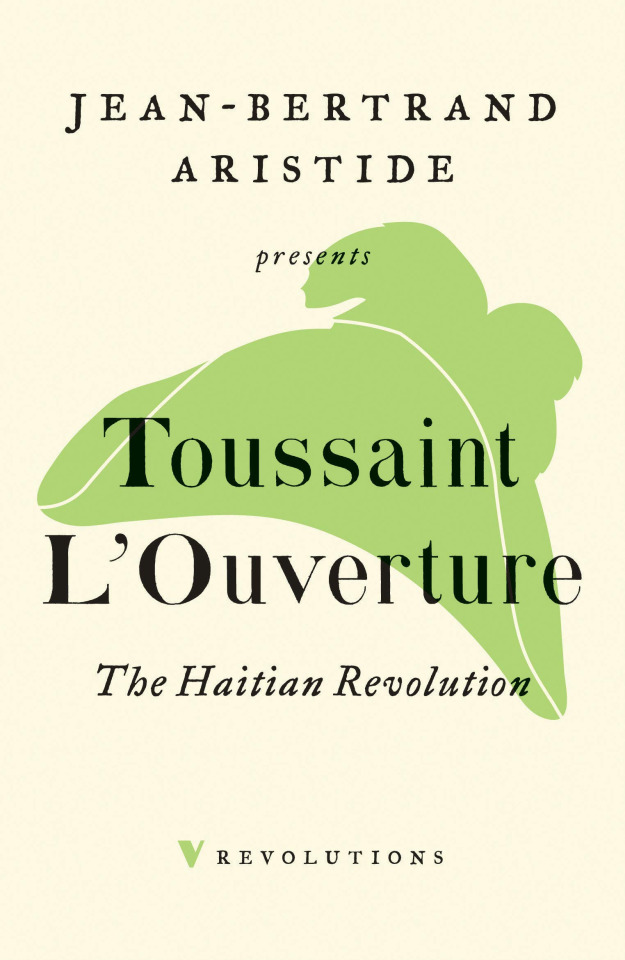
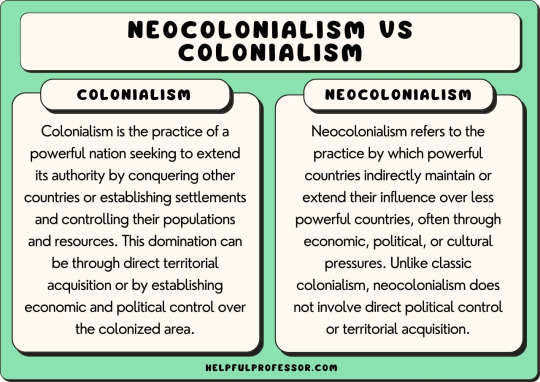
Researched Fiction Genres in 'Post-colonial' Literature: The various iterations of The Sorcerer's Apprentice I've written so far have experimented with two main genres, fantasy and horror. The first iterations were straight-up typical high fantasies with Kings and Queens and dragons in a UK-style setting; the second were more realistic but much more eerie psychological horror stories set in modern-day New York City (if you scroll back far enough on this blog, you'll find evidence of both). Although I like some elements/scenes from both genre adaptations of The Sorcerer's Apprentice and, indeed, although I intend to incorporate some of these in the current draft, ultimately I abandoned the aforementioned versions because, at their core, they failed. Why? Because, while they nailed the interpersonal struggle between Valeriano and Altaluna, they did so without addressing the reason that struggle even exists in the first place. Namely, they failed to go beyond the personal relationship, to its systemic causes. The truth is that a person like Valeriano doesn't exist in a vacuum. He's a product and embodiment of a world with certain values. Yes, Altaluna may have defeated him in a high-fantasy royal skirmish for power or its modern-day equivalent inheritance drama, but engaging (even embracing) the system that produced him (royalty, birthright, etc.), undermines her victory. What was she in these earlier versions of The Sorcerer's Apprentice, but another shade of Valeriano? What did she represent, in her victory if not the desire to be the oppressor? The deep self-depreciation of the oppressed? Even the aesthetics of these earlier versions glorified Valeriano's world, with little mention of Altaluna's. This was my fault. I did not understand that these things were in me. I am beginning to. In any case, I don't intend to make the same mistake twice, so I'm doing a little research into how different literary genres have been used to tell stories about colonialism/neocolonialism/post-colonialism. I read a pretty good article from Globalization, Utopia, and Postcolonial Science Fiction: New Maps of Hope by E. Smith entitled "Third-World Punks, or, Watch out for the Worlds Behind You," and I'm trying to look into Afrofuturism and Latinfuturism.
REMINDERS:
Answer pending asks. Yes, I am bad. I admit it, I am very bad. (why am I so bad *sobs*)
Publish that promised worldbuilding post on the geography, flora & fauna of The Sorcerer's Apprentice universe.
Survive this stomach bug.
TAG LIST: (ask to be + or - ) @the-finch-address @fearofahumanplanet @winterninja-fr @avrablake @outpost51 @d3mon-ology @hippiewrites @threeking @lexiklecksi @achilleanmafia
© 2024 The Sorcerer’s Apprentice. All rights reserved.
#writeblr#writeblr community#progress update#biweekly progress update#worldbuilding#writeblr cafe#writers on tumblr#writing#writing community#writers of tumblr#original fiction#wip#writer community#writing blog#creative writing#writer stuff#writblr#writblr community#WIP: THE SORCERER'S APPRENTICE#WIP: The Sorcerer's Apprentice
13 notes
·
View notes
Note
Not sure if you've answered this before, but since you've been posting recently about Napoleon II I'd thought I'd ask. Do you think there's any credence to the rumours of an affair between Sophie of Bavaria and Napoleon II? From what I know of Sophie, it seems more likely, if there was an affair, it was emotional rather than physical. But I do like the idea of Maximilian being his son, even if I do think it's unlikely
Hello! No, I haven't talked about this before. Before answering I feel the need to add a disclaimer (?) that only recently I've started to get into Napoleonic history and what came after. So there probably are people here who know way more about Napoleon II than I do and can answer better.
Now coming back to the question: is there any credence on Sophie and Napoleon II aka the Duke of Reichstadt aka Franz having an affair? The answer is that we can't really know for sure. There isn't any tangible evidence that proves that they had an affair, but neither we can disprove it: they did spent a lot of time together and adored each other. Historians don't seem to agree on this either, and even those who don't believe it still add something along the lines of "whether it happened or not..." because we weren't there so we can't really know (it's funny in the case of the author I quoted in my post from earlier because she couldn't seem to made her mind on whether she believed it or not, and constantly went from "Maximilian was totally a Habsburg" to "Iowkey I actually think it makes sense that he was Reichstadt's son").
For my part, I also feel that a physical affair was not super likely, and that there relationship was more like a romantic friendship. However I also really like to think that Maximilian was his son lol. It just adds a layer to their stories that makes them more emotional I think? First of all, Max was Sophie's favourite son. Isn't it more tragic if this was because he was the son of her deceased lover? Doesn't this add another reason as to why Franz Josef was jealous of his brother and tried to keep him away of positions of power at all cost? Wouldn't this make even more ironic that Napoleon III put him in the throne of Mexico and then abandoned him to his luck there?
And then we have Franz, from whom everybody expected so much: he was the son of Napoleon! The grandson of emperor Franz! He was meant to be someone great, and yet he died so young in such an ordinary way. It's not only sad, it is anticlimactic. We like our history ordered, like a story, and Franz's story doesn't end in a satisfactory note, so there is this need of looking for a sort of continuation. And there is a narrative in their history that just screams to become a story: Max was born when Franz was dying, he was also a talented young man from whom everybody expected so much, he also died young. Thus Franz's story turns into a tragic love story of a forbidden love, and if he had a son that, unknowingly, continued the legacy of his dynasty and created a new empire in the new world, Franz's story doesn't end with him in his bed dying of consumption: it ends with Maximilian dying heroically under a fire squad, it ends with them being buried together.
I ended up digressing badly sorry, let's go back to the question. Until something like, I don't know, the secret diary or correspondence of Sophie and Franz appears we can't prove that there was an affair. All the evidence is circunstancial, and they might have just been friends. But from what I read, I do think that Franz was the person that Sophie loved the most after her children, whether it was romantic or platonic.
TL; DR: no, there isn't much evidence, however we can't say it never happened either. Also it does make for a great story so personally I think that historical fiction should just embrace it ngl (to quote a now ancient proverb: historical inaccuracies are good as long as I like them)
#also so many biographies of maximilian tie him with reichstadt it's crazy#it's like they want him to be his son (which as I say I understand perfectly)#sophie of bavaria archduchess of austria#napoleon ii duke of reichstadt#maximilian i of mexico#asks
22 notes
·
View notes
Note
3/3 anyway, i prefer your bridgerton verses! love how selina & clairmont are becoming friends <3 low-key on team selina/clairmont because david's a cinnamon roll lol but for the ask game: could you tell us what david's up too/his reaction to selina popularity in the ton? (i asked this before but not sure if you received it or not...but if you're busy with real life stuff please ignore). sending you lots of looooooveeee <3
ah thank you! here's what we have:
The Time David Basset Met The Duke of Wellington
The truth was, he did not entirely believe the reports from his family about what Selina was getting up to as a married woman. Caroline, his closest in age, tended to send the choicest gossip, while Amelia and his mother (Belinda was too infrequent a correspondent) were more general. And so when he found himself at a ball before the start of the Hilary term, he was shocked to see the sheer amount of people who knew her, spoke with her with affection, and even respect.
Somewhere around midnight, a distinguished-looking older man with a rather hooked nose stopped by to collect a waltz from Selina, remaining impudently close to her afterwards as they continued what seemed to be an animated conversation.
David found himself moving closer, irritated that this man, who was practically her grandfather's age, should be behaving in so familiar a manner. He became even more irritated when he realized Selina seemed completely unruffled, and was instead laughing at whatever dry witticism he was making at present.
The man looked exceedingly familiar, David thought as he edged closer, but he had drunk enough over the course of a night in an attempt to distract himself from Selina that he was not quite... lucid.
"...Is it too late for you to switch loyalties, madam?" the man was saying. "I recall your grandfather the viscount served briefly in Pitt's cabinet."
"You will not tempt me in the name of family loyalty, sir," Selina said, childing him playfully. "At any rate, I am no longer a Bridgerton. I am a De Courcy now."
"And therefore a Whig through and through," the man said with a put-upon sigh. He then glanced over at David. "I suppose you can be forgiven, Lady Clairmont, for your poor taste in husbands if you introduce me to the fellow who has been glaring at me for some time now."
Selina looked over her shoulder, seemingly surprised, but she recovered admirably as David came to her side.
"Your Grace," she said smilingly, "may I introduce you to my cousin Lord Clyvedon? David, I am sure you recognized His Grace, the Duke of Wellington?"
When faced with Field Marshall, Victor of Waterloo, Conqueror of Napoleon, Prime Minister, Statesman, and Personal Hero To All Those Who Went Through Public School And Oxbridge, there was nothing left for David to do but allow his jaw to drop inelegantly.
#do I think there is inevitably one bridgerton woman who was flirted with by the Duke of Wellington?#yes#because based on what I researched his *friends* got younger as he grew older :/#bridgerton#david basset#bridgerton next gen#selina bridgerton#duke of wellington#snippet#ask
5 notes
·
View notes
Photo
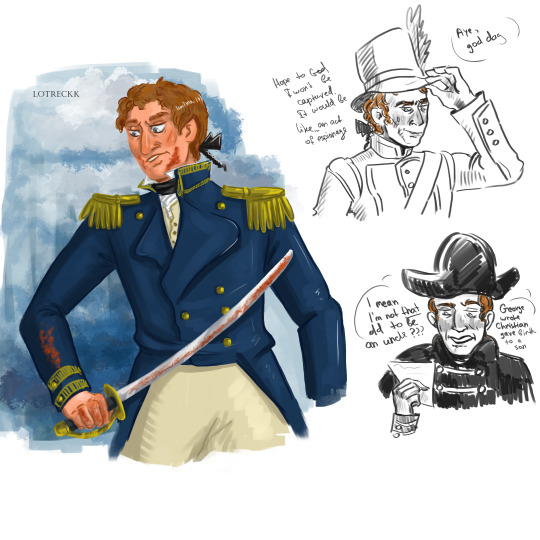
Today I have a pleasure to offer you young John Ross. I mean THIS MAN was an impossible redhaired Scottish trouble during the Napoleonic wars.
1. Shortly after he had been promoted to a lieutenant (1805) he was in command of ‘chase maree’ named Alexandre with fifteen men. They bumped into two armed Spanish boats and started firing in each other but Alexandre had less ammunition than her rivals so Ross decided to board Spanish boats BUT once he jumped into one of the boats she steered away from Alexandre and he was left alone with about twelve Spanish men. He killed four, wounded three and others jumped overboard (away from this crazy highlander lol). Ross had two legs and one arm broken, he was wounded in the head and nearly died from severe loss of blood… Firstly some people in the Admiralty really didn’t believe that an officer could do something like that.
2. He was really good at French and he learned Swedish while sailing on merchant ships so as a midshipman he was engaged in carrying on the secret correspondence (later he was himself imprisoned by the French for some time lol who didn’t? I suppose it was a necessary experience for a navy officer of the time). Then while serving under admiral Sumarez (who really trusted him and they in general had good relationships) in the Baltic he was left to help the Swedes to modernize their fleet AND FELL ILL because there was an epidemy in the Swedish Navy this time. AND THEN HE HAD TO DISGUISE HIMSELF AS A SWEDISH OFFICER TO RUN AWAY FROM THE COUNTRY because of the coup after which Charles XIII became the king. Ross might have been arrested like on his way he was questioned and examined and I’m impressed he must have been really good at Swedish and had nerves of steel.
It’s written that he was very ardent and ambitious but gallant and had really no sense of danger.
#art#history#sir john ross#arctic exploration#napoleonic wars#fanart#i'm simping for crazy navy men#george ross how could you give your child to this disaster what did you expect#my art#royal navy
12 notes
·
View notes
Text
2020 Creator’s Self-Love Extravaganza
Boy howdy, but it has been a year. So much so that I felt the need to dig up this meme so I can lavish myself with a little TLC, ‘cause you know what? I deserve it! And so do you. This year has been tough, and even in the best of times it can be a real struggle to remember that, instead of being your own worst enemy, you should strive to be your best cheerleader. Remember to be kind instead of cruel, to forgive rather than condemn yourself. Creativity is hard, and it is always a journey, never a final destination, so let’s take a moment and sight-see where we’ve been this year, yeah???
Rules: It’s time to love yourselves! Choose your 5 favorite works (fics, art, edits, etc.) you’ve created this year and link them below to reflect on the amazing things you’ve brought into the world in 2020. If you don’t have five published works, that’s fine! Include ideas/drafts/whatever you like that you’ve worked on/thought about, and talk a little about them instead! Remember, this is all about self-love and positive enthusiasm, so fuck the rules if you need to. Have fun, and tag as many fellow creators as you like so they can share the love! <3
~~~~
I was tagged by @beautiful-thensad-thensadder and @flipredmonkey for this and agree it’s nigh impossible to choose only five (so I chose six), but here we go. I decided to go with the fics I think that really pushed me forward as a writer this year or meant a lot to me. In no particular order!
1. Do You Promise Not to Tell? (The Mandalorian, Din/Cara)
It’s kind of hard to believe that I started this fic in January of this year. I honestly had no idea where this was going when I started it, only that I was swept up in the CaraDin love and wanted to write some adventures for them. I was never much of a Star Wars fan before this (I know! Heresy!) but I learned way more than I ever thought I would writing this fic. Despite the lack of planning I feel like this ended up with a really consistent story, and way more epic than I ever intended at the beginning.
2. Good To Be Alive (The Mandalorian, Din/Cara)
I name-checked this one as a fave in a different meme recently. The unwilling-helmet-removal fic I never thought I’d write, and actually actively resisted writing for a while (I really didn’t think I wanted to explore that concept, but what do I know). It ended up tackling love and friendship and what it means to be a Mandalorian, and I’m very happy with how it turned out. And it certainly takes on a new feel with the current season.
3. Live A Lie (The Mandalorian, Din/Cara)
This fic, along with Hyperspace, were experiments in minimalism inspired by @beautiful-thensad-thensadder, and honestly I still love them. They are poetic in a way I would not have guessed I had in me, to be perfectly honest. This particular fic is about Din wrestling with his creed, actually, and though it features a different Mandalorian at the end and slightly different motivations, it’s actually kind of amazing to me how it mirrors some of this season.
4. Light Will Keep Your Heart Beating in the Future (TMFU, Illya/Napoleon)
Will I ever stop talking about this fic? Probably not. I love it so so much. I’ve always had a deep and abiding love for media that plays with timelines, nonlinear narratives, and the definition of what is “real”, so I’m surprised it took me this long to write a fic that does all of that. Plus, how many times do you get a chance to write a running gag about defenestrations??
5. The Definition of Madness (TMFU, Illya/Napoleon)
TIME LOOP. Did I mention I loved playing with time? Because I do. This was just a blast to write, and a challenge because I tried to do a daily update to correspond to Whumptober prompts (ok, so I kind of failed at that in the end, but I TRIED). That also meant that I planned the fic to fit into those prompts in that order, which was another challenge, and somehow, despite all of these challenges, this turned out better than I could have ever hoped.
6. Amor Magnus Doctor Est (TMFU, Illya/Napoleon)
I could not leave this one out. This academia AU was a labor of love for me, and a kind of catharsis at a particularly stressful time of my life. It was my first "real” AU—which, by the way, I always thought I wasn’t a fan of, shows me—and also the first long-form fic that I completely planned out ahead of time. I so loved the journey of writing this and sharing it, and I’m so happy with the finished product. If you were ever curious about what life is like for professors, well, this is it (with, you know, added romantic ~drama~ lol).
~~~~
I’m tagging @heytheredeann, @therogueheart, @shewolf-2013, @iamskyereads, @imaginedragonsfly, and anyone else who wants to play!
#tag game#writing#fanfic#caradin#napollya#that's all I write anymore apparently#the mandalorian#tmfu
8 notes
·
View notes
Note
Do you think Lafayette had a little mancrush on Hamilton? Lol I'm semi kidding but do you think you could do an analysis of their relationship; I find it both endearing and amusing!
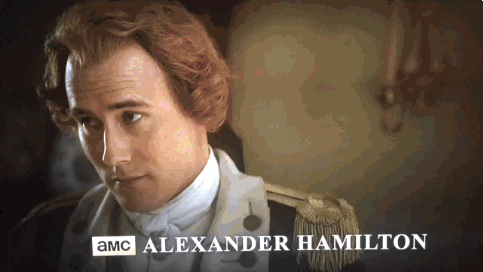
You and me both! Here’s an overview.
In 1777, Alexander Hamilton made the acquaintance of yetanother French officer seeking to carve out a place for himself in the AmericanRevolution: the Marquis de Lafayette. After enduring the abuses and demands ofa slew of international hopefuls seeking advancement and flaunting theirtitles, this meeting had every reason to go poorly. Alexander was in for asurprise.
The two orphans quickly became close friends. In lateryears, Lafayette described his relationship with Hamilton as brotherly (a stepabove ‘most affectionate’ in his book). It was probably Hamilton that assistedin polishing Lafayette’s English, although he had mastered a surprising amountby the time he arrived in North America. Because Hamilton spoke French and bothmen were included in Washington’s camp family, they spend quite a bit of timetogether. Lafayette was the youngest of the bunch; when he first arrived on US shores, he was nineteen years old. Hamilton was around the same age…somewhere between 20 and 22, and this probably fostered the strong bonds of friendship only the young at war can have.
Whenever Lafayette found himself overwhelmed, frustrated, or at a loss, he often turned to Hamilton as his sounding board. Alexander didn’t always prove to be a consistent correspondent due to his massive workload (there are many amusing letters that begin with Lafayette griping about Hamilton seemingly ignoring him), but when he wrote back, his apologetic explanations and patient replies to the marquis’ concerns were always sincere. The future Secretary of the Treasury remarked at one point about the thousand little ‘whims’ Lafayette was prey to, but he often reassured his friend that his affection remained intact.
Inadvertently, Lafayette was responsible for a part in the falling out between Washington and Hamilton. On the day everything came to a head, Washington had been left waiting for Hamilton at the top of the stairs of headquarters and blew up at Alexander for the perceived slight. Hamilton, however, had been stopped in the hallway by Lafayette (one account says that the marquis grabbed him by the buttons and that always makes me laugh) to catch up. When Lafayette learned about the fallout, he attempted to make peace between them, but his suggestions were not heeded by either party. At one point, Hamilton even asked Gilbert if he could be transferred to Lafayette’s division or if his French friend could recommend a promotion for him (which Lafayette agreed to heartily in both instances), but Washington dismissed these attempts.
In the end, when Hamilton returned to the war effort, he and his battalion was placed under Lafayette’s command and the two fought together at the Battle of Yorktown. When Lafayette returned to France, he kept in touch with Hamilton, inquiring after his family and news of America. One anecdote has Lafayette, Hamilton, and a few other officers reuniting at a tavern during his 1784 return visit to America…where the two men agreed that if circumstances allowed, they would swap sons for education: Georges would study in America under Hamilton’s protection, and Philip would study in France under Lafayette’s patronage. Circumstances, however, did not allow.
Lafayette’s silence after his escape from France led many to believe that he had been killed or was in exile somewhere in eastern Europe. When news arrived in America detailing the fate of his family, however, Lafayette’s American friends did what they could to alleviate their suffering. Georges Washington de Lafayette, Gilbert’s son, lived with the Hamiltons for a time to escape the French Revolution and to attempt to seek aid for his father’s release. Eventually, Lafayette and his family were reunited and returned to France, but the strict censorship of his letters due to Napoleonic France’s insistence made consistent correspondence between Lafayette and his American comrades almost impossible.
When Hamilton died in 1804, Lafayette wrote of his grief and described Hamilton as a brother. In later years, during his 1824-1825 tour of the United States, Lafayette was often presented with symbols of his time in the American Revolution and on more than one occasion, this included busts of Hamilton. One of Alexander’s son’s nearly caused the elderly Lafayette to faint into collapse because of the striking likeness to his deceased father.
This is a lot longer than I intended it to be.
#Marquis de Lafayette#Lafayette#Gilbert du Motier#Alexander Hamilton#George Washington#Georges Washington de Lafayette#Philip Hamilton#facts
523 notes
·
View notes
Photo
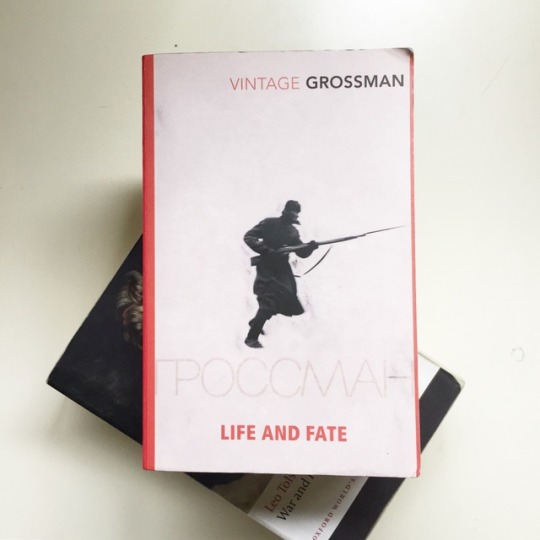
#finishedbooks Life and Fate by Vasily Grossman. This one is interesting! I had never heard of this but took it seriously in the shit selection they had a Book-off since it was published by Vintage (they do Proust, Nabokov, etc) and it was 900 pages. I mailed Dari who I consider to be an authority on Russian literature and she had never heard of him either. Turns out he was a war correspondent at Stalingrad and this was the only novel he ever wrote but never got to see published as it was "arrested "by the KGB. In doing some research foud only The Gulag Archipelago and Bulgakov's Heart of the Dog have ever been "arrested." It wasn't published till 1980 with an extra manuscript being found and smuggled to the west. Was still also hesitant about getting it because the novel came with the loaded label of being the Soviet, War and Peace. But like War and Peace it proved to be an epic, in a similar omnibus style weaving precisely 16 storylines together during the time of Stalingrad. Maybe I am used to Russian epics now but when I read War and Peace nearly a decade ago I struggled essentially until Napoleon crossed the Niemen to begin his attack which was around 600 pages in. This came off clearer and I had no problem following along as he painted each character vividly enough for me so I did't have to refer to the cast list at the back of the book. I found write away I did need context for the battle itself since only thing I recall about the battle was what I played in Call of Duty on Xbox 360 lol. So I took sometime and watched several youtube documentaries and finally delved into the novel only to listening to Shostakovich's 7th symphony written at the time of the Nazis' three pronged attack on Leningrad, Moscow, and Stalingrad...became a sick game between Stalin and Hitler as Hitler even though it had little strategic importance wanted to take Stalingrad to give a fuck you to Stalin. And to the dismay of his generals wrecked his armies in the process as Stalingrad held out longer than whole European countries did, really turning the tide of the war. I am no military strategist but going to war with Russia is like going to war with China the land just eats up invaders stretching supply lines etc...but it is always winter that protected Russia as it beat both Napoleon and Hitler... Anyway, the whole time I was reading I wanted to attack it, as its philosophy wasn't touching Dostokvseky, the humanity of Chekhov, or shear epic-ness of Tolstoy. It felt much more constructed and if anything in the style of a Hemmingway: clean and straightforward mixing in a lot of humor to what was otherwise extremely dark. One of the stories follows a young Russian woman who is jewish and caught behind Nazi captured territory. This while in other chapters the author details captured soldiers who have to build and work at the camps etc...these particular characters only briefly intersect you realize as she has the door of the chamber closed behind her by a character you learn about 200 pages prior. I enjoyed the nuclear scientist's story who is on the verge of being denounced and chose to stick to what he knew was right and somehow due to his talent managed to not only not get purged but a receive a phone call from Stalin himself saving his life and reputation in the process...it also gives an inkling to Stalin possibly knowing ahead the value of nuclear physics. It is interesting that his character also is metaphoric of the war itself. As the war was at its ugliest period was just when he was being excommunicated and talked about by all his colleagues and neighbors only to beat odds and rise to the top of the scientific intellectual community with the Soviets not only pushing back the Germans but encircling them. In an earlier chapter while he was evacuated from Moscow he got in a political argument over tea, alluding to the Soviet manner of discussing politics in hushed tones after the 1937 purges. He mentions in American novels its always over alcohol but in the USSR I took it as how dangerous a loose tongue could be ( I wouldn't had of survived long). I also like a particularly interesting SS officer's storyline who had one of the first Bolsheviks from the revolution in his camp who refused to talk. The Nazi was more objectively interested in his philosophy than any sort of interrogation that the Bolshevik was distrustful of. The Nazi reasons Hitler and Stalin to be one and the same just the systems go about them differently and he mentions how the Nazis socialized the people while the Russians socialized institutions, ie banks, etc...The Nazi system valued the people more yet like Stalin the system was headed by to maniacs that made absurd justifications for socialization to happen. Hitler saw the Jewish as the obstacle and through collectivization Stalin first saw the peasant class as the ones who needed to die before later in 37' believing it to be the intelligentsia and military elite that had to go before his goal could be achieved. Ironically he nearly lost the war because he killed off his most capable military men. Lastly, and perhaps the most interesting was the motivation for the regular soldier and Soviet citizens. They fought even though was really no concern for their lives. There were literally military police behind the soldiers ready to shoot anyone who looked to be retreating and a lot of times there would be an obvious strategic hill to go back to win skirmish that they couldn't do because of the absurdity that no one could take one step back...So much more to this novel, but what a fun week it was reading it. I'd recommend Dostoevsky or Tolstoy any day over these if you haven't done them but this more for the historical perspective and its shear scope made for an amazing read.
1 note
·
View note
Text
An important matter of state
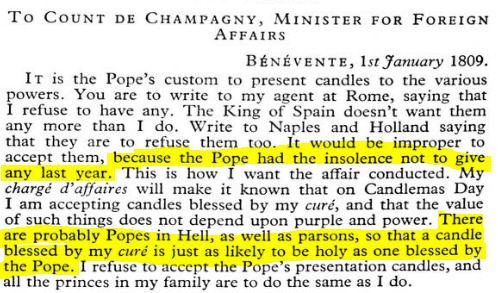
Napoleon’s Letters by J.M. Thompson
30 notes
·
View notes